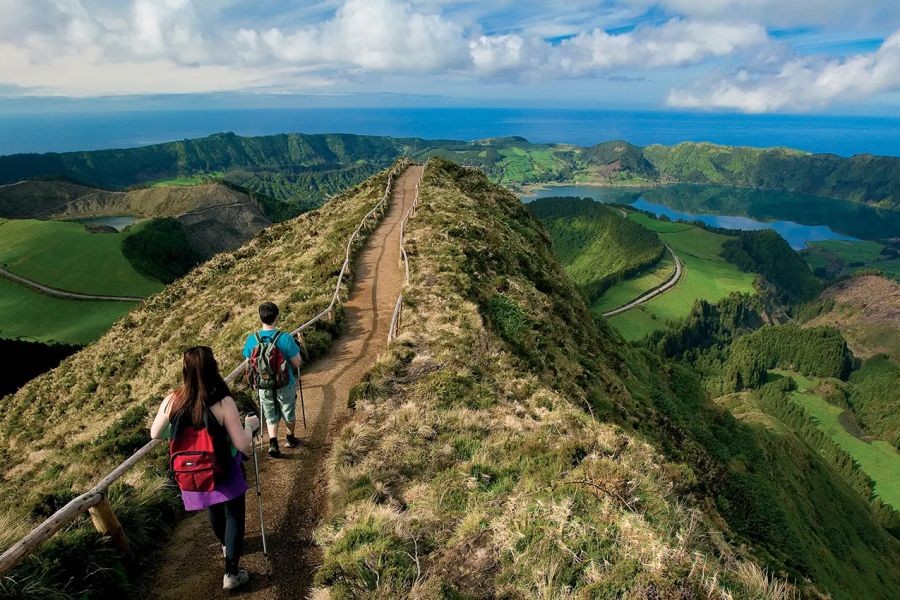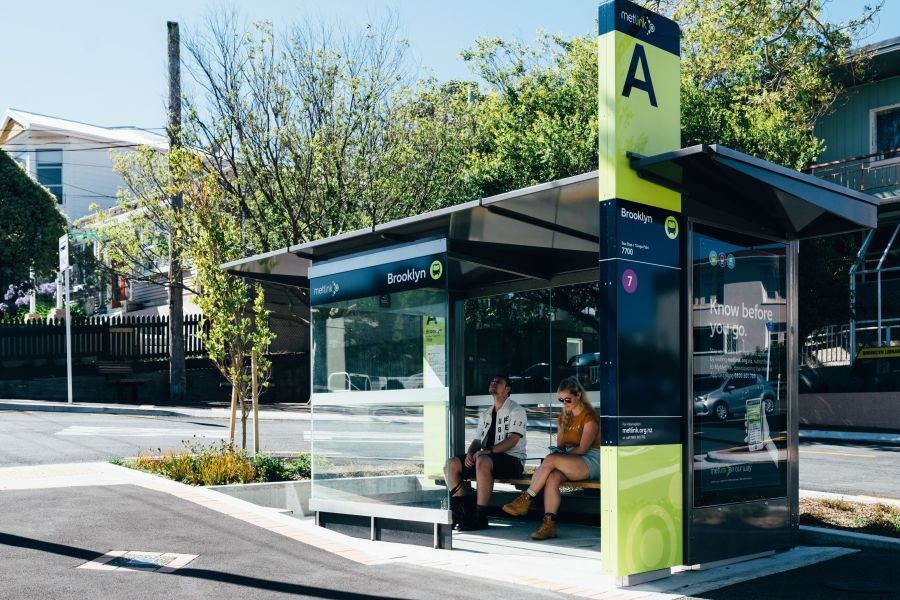New Zealand has long been a beacon of natural beauty, drawing millions of tourists to its shores each year. However, the COVID-19 pandemic brought unprecedented challenges to the tourism industry worldwide, including in New Zealand. As the country emerges from the pandemic, a renewed focus on sustainable tourism initiatives is reshaping the landscape. This article delves into New Zealand's efforts to promote sustainable tourism, the impact on commercial real estate, and the opportunities for investors and stakeholders.
Understanding the Shift Towards Sustainable Tourism in New Zealand
The pandemic forced the global tourism industry to pause and reconsider its practices. In New Zealand, this has led to a significant shift towards sustainable tourism. According to the Ministry of Business, Innovation and Employment (MBIE), sustainable tourism is defined as tourism that meets the needs of present tourists and host regions while protecting and enhancing opportunities for the future.
New Zealand's commitment to sustainability is evident in its policies and initiatives. The government's focus on reducing carbon emissions, conserving natural resources, and promoting cultural heritage has become integral to its tourism strategy. This shift aligns with the global trend, where travelers increasingly prioritize eco-friendly and culturally enriching experiences.
Data-Driven Insights: The Impact of Sustainable Tourism on New Zealand's Economy
According to Stats NZ, the tourism industry contributed approximately NZD 41.9 billion to the economy in 2019, accounting for 5.8% of GDP. However, the pandemic saw a sharp decline in international arrivals, which dropped by 84% in 2020. As the industry recovers, sustainable tourism is expected to play a crucial role in its resurgence.
The MBIE's 2023 report highlights that domestic tourism has been a driving force in the recovery, with a 25% increase in local travel spending. This shift presents opportunities for commercial real estate investors to capitalize on the growing demand for sustainable tourism infrastructure, such as eco-lodges, nature reserves, and cultural centers.
How Sustainable Tourism Initiatives Work: A Deep Dive
Case Study: Te Urewera – A Model for Sustainable Tourism
Problem: Te Urewera, a former national park, faced challenges in balancing conservation efforts with tourism demands. With its unique biodiversity and cultural significance to the Tūhoe people, unregulated tourism threatened its delicate ecosystems.
Action: In a groundbreaking move, Te Urewera was granted legal personhood in 2014, recognizing it as a living entity. This change empowered the Tūhoe iwi to manage the area, focusing on sustainable practices that respect both the land and its cultural heritage.
Result: Visitor numbers have been carefully managed, resulting in a 30% increase in visitor satisfaction. Conservation efforts have also seen a positive impact, with native species populations stabilizing.
Takeaway: Te Urewera's approach demonstrates the potential of integrating indigenous knowledge and legal frameworks to achieve sustainable tourism. Investors can learn from this model to develop projects that respect cultural and environmental values.
Case Study: Kaimai Mamaku Conservation Park – Balancing Tourism and Conservation
Problem: The Kaimai Mamaku Conservation Park, known for its stunning landscapes and hiking trails, faced degradation due to increased visitor numbers and inadequate facilities.
Action: The Department of Conservation (DOC) implemented a Sustainable Tourism Strategy, focusing on infrastructure development, visitor education, and partnerships with local communities.
Result: Within two years, the park reported a 20% reduction in litter and trail erosion. Visitor numbers have increased by 15%, with improved facilities attracting longer stays.
Takeaway: Strategic infrastructure investments, combined with community engagement, can enhance visitor experiences while preserving natural resources. This approach offers a blueprint for investors seeking to develop sustainable tourism ventures.
The Role of Commercial Real Estate in Sustainable Tourism
The push for sustainable tourism has significant implications for commercial real estate in New Zealand. Investors are increasingly focusing on eco-friendly developments that align with the country's sustainability goals. This includes green buildings, renewable energy projects, and sustainable transport solutions.
Pros and Cons of Investing in Sustainable Tourism Infrastructure
Pros:
- Higher ROI: Properties designed with sustainability in mind often attract premium pricing and higher occupancy rates.
- Long-Term Viability: Sustainable developments are more resilient to regulatory changes and environmental risks.
- Positive Brand Reputation: Aligning with sustainability values can enhance brand image and customer loyalty.
Cons:
- Higher Initial Costs: Eco-friendly materials and technologies can increase upfront investment.
- Regulatory Challenges: Navigating sustainability certifications and compliance can be complex.
- Market Volatility: The nascent nature of sustainable tourism can lead to unpredictable market dynamics.
Common Myths and Mistakes in Sustainable Tourism Investments
Myth: "Sustainable tourism is just a buzzword with no real impact."
Reality: Sustainable tourism initiatives in New Zealand have led to measurable environmental and economic benefits, as evidenced by case studies like Te Urewera.
Myth: "Sustainable developments are not profitable."
Reality: Data shows that sustainable properties often command higher prices and attract eco-conscious travelers, leading to increased profitability.
Myth: "All green certifications are the same."
Reality: Not all certifications hold equal weight. Investors should seek reputable certifications like Green Star or NABERSNZ to ensure genuine sustainability credentials.
Biggest Mistakes to Avoid
- Underestimating Regulatory Requirements: Failing to comply with sustainability standards can result in fines and reputational damage.
- Neglecting Community Engagement: Successful projects often involve collaboration with local communities to ensure cultural and environmental respect.
- Ignoring Market Trends: Investors should stay informed about emerging trends, such as the rise of digital nomads seeking sustainable accommodations.
Future Trends and Predictions in New Zealand's Sustainable Tourism
By 2028, sustainable tourism is expected to dominate New Zealand's travel industry, driven by consumer demand and regulatory pressures. According to a report by Deloitte, eco-friendly accommodations and experiences will account for 60% of the market, with digital innovations enhancing personalized and sustainable travel experiences.
Furthermore, the integration of technology, such as AI-driven travel apps, will streamline sustainable travel planning, offering tailored itineraries that minimize environmental impact. Investors should consider these trends when developing projects to ensure long-term success.
Conclusion: Embracing Sustainable Tourism for a Brighter Future
New Zealand's commitment to sustainable tourism presents a unique opportunity for commercial real estate investors. By aligning with the country's sustainability goals, investors can contribute to environmental conservation while reaping financial rewards.
As the industry evolves, staying informed about trends, regulations, and consumer preferences will be crucial for success. By embracing sustainable practices, investors can play a pivotal role in shaping a vibrant and resilient tourism sector in New Zealand.
What's your take on New Zealand's sustainable tourism initiatives? Share your insights below!
People Also Ask (FAQ)
How does sustainable tourism impact businesses in New Zealand?
Sustainable tourism offers businesses in New Zealand a competitive edge by attracting eco-conscious travelers, leading to increased customer loyalty and higher revenue.
What are the biggest misconceptions about sustainable tourism?
A common myth is that sustainable tourism is unprofitable. However, data shows that sustainable properties can command premium pricing and attract more visitors.
Who benefits the most from sustainable tourism?
Sustainable tourism benefits local communities, the environment, and investors, creating a win-win situation for all stakeholders.
Related Search Queries
- Sustainable tourism strategies New Zealand
- Ecolodges in New Zealand
- Impact of COVID-19 on NZ tourism
- Green building certifications NZ
- Investment opportunities in sustainable tourism
- New Zealand tourism recovery post-pandemic
- Eco-friendly travel destinations NZ
- Community engagement in tourism
- Future of tourism in New Zealand
- Digital nomads and sustainable travel
































antoniopavy58
9 months ago